Soldiers once walked past the historic Rose Bower Farm in Appomattox, Va. where Barbara Luna has fittingly claimed the land for Thoroughbred war horses.
For the older ones who have battled so long on the track, she offers respite and healing at her newly created nonprofit War Horses at Rose Bower, and begins again, at age 56, helping the horses of an industry that has been too kind to her.
“In all these years, I’ve made my living in some area of racing,” says Luna, a long-serving member of Parx Racing’s retirement program Turning for Home.
In this week’s Clubhouse Q&A, Luna reminisces about her storied career in racing, her hands-on work with Turning for Home, which she named, and her excitement to build a charity for the oft-forgotten warhorse.
Q: You’ve been a fixture in the racing industry for a long time.
I’ve been working on the racetrack since I was in my 20s. My OTTB in high school was from Dover Downs, which doesn’t exist anymore, and as soon as I got out of college, I started working in Kentucky on a breeding farm — I didn’t come from a horse family, but I was so excited to be around racehorses that I had to find work to be around them.
Q: You started at Blood Horse Magazine and quickly found yourself at some of the biggest sales, learning the ropes with the masters of their generation.
I started out working at Blood Horse back when we worked on manual typewriters. I worked in the research department, so, all those pages at the back of the old Stallion Register—I worked on that!
Then later I got a job breaking babies in Paris, Ky. through Stephen DiMauro, and the babies were all out of major stakes-winning mares, so all of my babies became major stakes winners too.
I followed their careers for a long time.
Q: You enjoyed racing in its heyday.
I worked in racing in the early years when it was filled with good people. I used to go to all the yearling sales with Stephen DiMauro and saw hundreds and hundreds of yearlings, and that’s how I learned about racing and pedigree. He trained Eclipse winners Dearly Precious and Wajima.
I learned with people who went to Keeneland and Saratoga, back in the day when racing was as it should be.
Q: This excitement catapulted you into writing careers at racetracks.
In the late 80s I started by knocking on the door at Monmouth Park and landed a features writing job. And this led me to become the first female television commentator for racing there; I did the Monmouth Park paddock show for many years, and did television and handicapping for a very long time.
Q: In the 90s you went to work for the Standardbred Retirement Foundation, and got your feet wet with racehorse retirement.
I became the office manager for the Standardbred Retirement Foundation, which was based in New Jersey, and got involved with ReRun, Inc. for a year, and also met executive director Mike Ballezzi of the Pennsylvania Thoroughbred Horsemen’s Association.
I was sitting in his office one day, and he said he wanted to start up a retirement program for racehorse and I raised my hand and said, ‘I’ll do it!’ I made up a business plan and we put together Turning For Home, which we funded with proceeds from the slots. It was opened in May 2008, when we took in our first horse.
Q: For five-plus years, Turning for Home took in four horses a week.
We met every week to go over budgets, and we made sure that every horse we took in moved into a (retirement) program, and we financially supported those programs, and made sure all the horses we took in were OK.
The revenue from the slots was a big, big deal to us. We didn’t have to do fundraisers because this is where we got our funding. And the (money) was used to do full veterinary exams, and to fund (the horse’s future). We became a model program. We got calls from across the country from other tracks who wanted to start their own program, and Mike knew it was important for racing to do this. I was just lucky enough to be sitting in his office when he thought of it.
During my time we took 980 racehorses out of the Philadelphia Racetrack in five-and-a-half years.
Q: How did this deep experience lead you to found a nonprofit for war horses?
I always noticed that older horses, no matter how quiet they were, or how beautiful they were, were unwanted. Nobody was really interested in adopting them. Someone would ask me how many starts one had had, and I’d say 70 and they’d say, ‘I don’t want him.’
But I knew how great they were. My own horse, Colonel Bart, (84 starts, $406,000 earnings) was a high-level allowance horse. He’s a really cool horse and I always promised him I’d keep him until he dies.
The war horses I met at Turning for Home were some of my favorites. When you’d tell them to “stand up for your photo right now” they stood up, and they acted smart.
Q: Now you’re committed, at War Horses at Rose Bower, to providing a landing place for warhorses like those you’ve met.
I found the 35-acre farm of my dreams in Appomattox. I love Civil War history and this property and old farmhouse sits on the main stagecoach road where thousands of Union and Confederate troops marched right past my house.
The original name of my property was Rose Bower Farm, and everyone calls the longtime racehorse warhorses, so I thought of the name of my nonprofit in five minutes!
Q: You settled into Rose Bower on September 16th and already have a few deserving residents.
The horses I have were actually candidates for euthanasia because of their injuries. But I think they deserve a chance. I’ve taken in Famous Patriot, who was just adopted, Captain Nightcap and Green Team. They’re nice horses, but they’re not really good and sound yet.
I’ve also taken in System Restore, who is a typical war horse. He’s sound, but a little tough; he’s difficult.
Q: You plan to start slow, adhere to a strict business plan, and build your program carefully.
I learned to keep on budget in all my years at Turning for Home. I did full financial reports every week, and was very conscientious about how and where the money was going. Right now I’m taking horses that come with a donation, and will be very careful to make sure I have enough money in the bank for the warhorses.
I’ll never be that rescue that starts the winter begging for money for hay. I’ll have that hay in my barn. I don’t want anyone to think that the horses here are not going to make it because I’m not getting enough in donations.
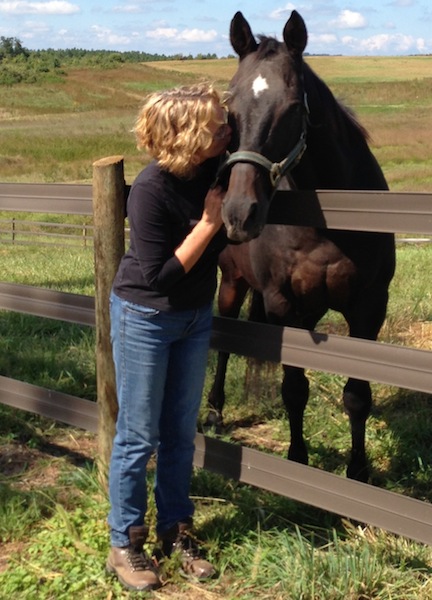
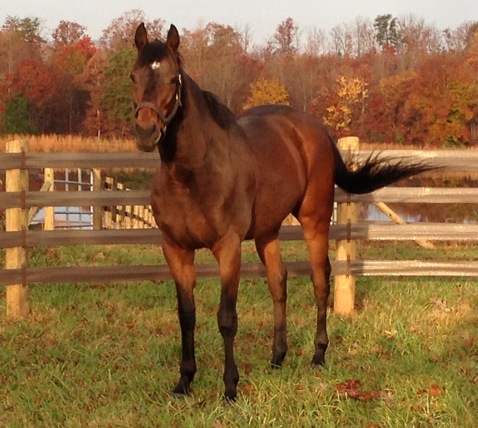
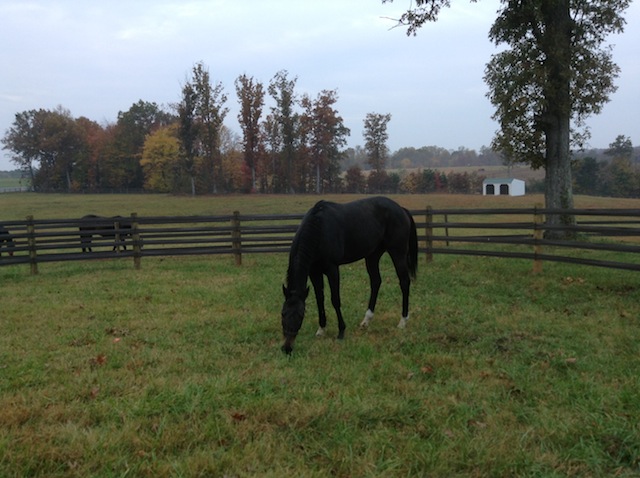
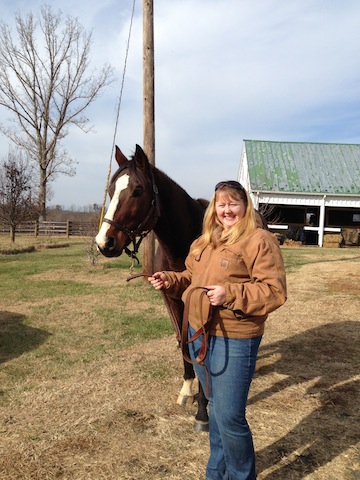

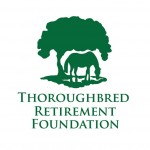
Awesome. Love the business plan side of it. Good for you. Wish more people were as smart.
Barbara,
Thank you for taking in the “Old Warriors”. There are many of us who look out for them and try to arrange to get them off of tracks after they have made such a sound contribution to the sport of racing. You’re right, not everyone will take in a great campaigner” after 50-90 starts. People don’t think they will transition well or that they are sound. Most of those people would be wrong. They are the most thankful of all and bond with the people who take the time to get to know them and train them.
Please keep us updated through Off Track Thoroughbreds as to the progress of War Horses at Rose Bower.
BTW Barbara, you have an email list? I know a great number of people devoted to the “Old Warriors” who would like to be abreast of your farm and your residents at the “pensioners’ palace”.
Thanks!
This is how a non profit rescue should be run. Thank you so very much Barbara.
Barbara,
What you are doing is my dream! I live outside Houston, Texas and we have Sam Houston Race Park here. I would greatly appreciate your assistance and expertise in establishing a rescue. My email is classeter@lcisd.org. Thanks so much!
Wishing you good luck and success with your new found dream come true. You and it are needed.